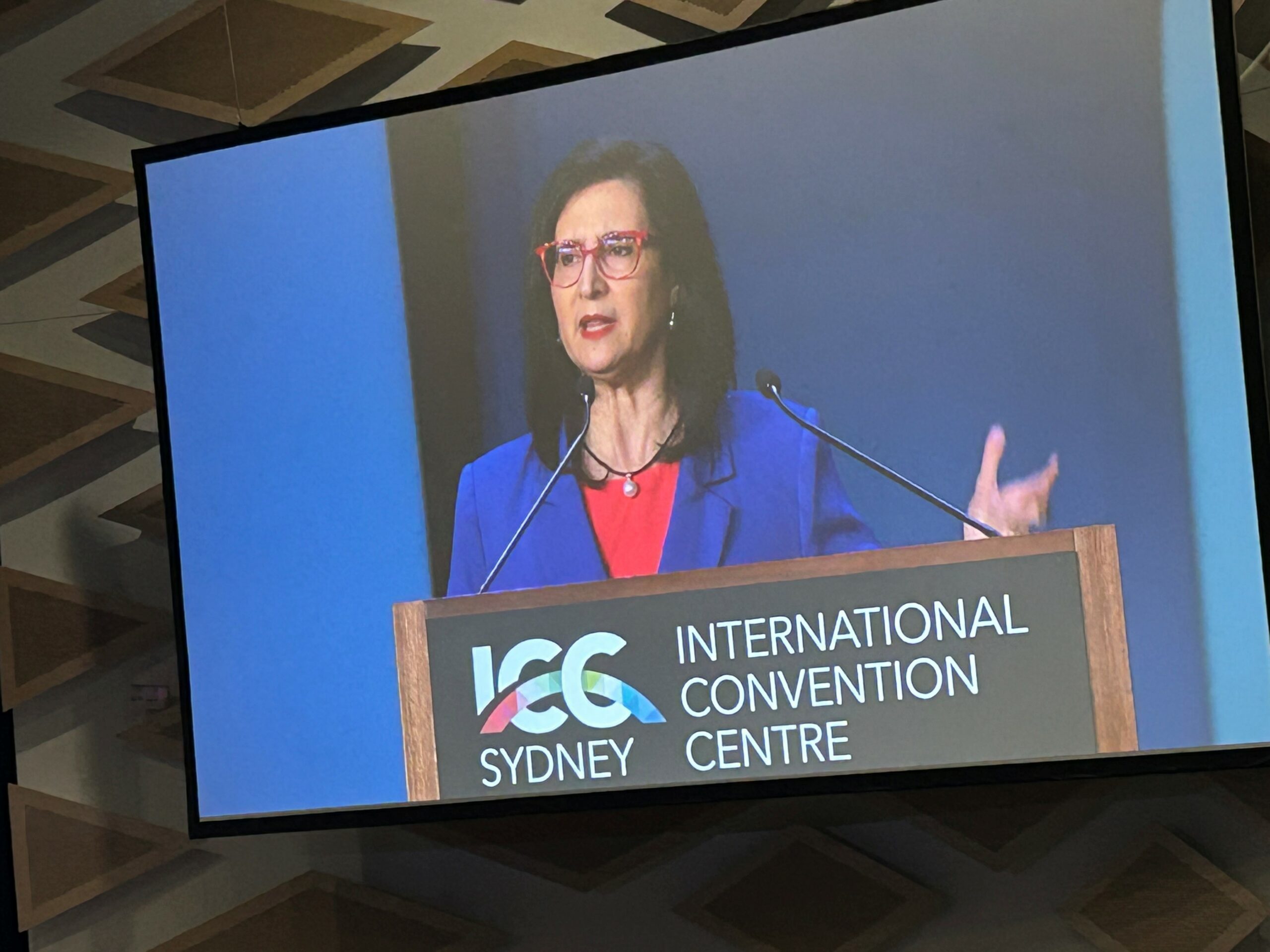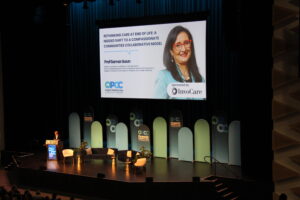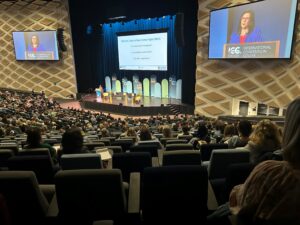Professor Samar Aoun: We need to build death literacy in order to create Compassionate Communities
Professor Samar Aoun: We need to build death literacy in order to create Compassionate Communities
by Megan Blandford
Friday, November 17, 2023
Professor Samar Aoun believes we need to improve death literacy in our local communities so that when the time comes we’re better equipped to help each other. She shared her research at the 2023 Oceanic Palliative Care Conference (23OPCC).
“Passion - we’ve lost it! Because of the way our health systems are done, the bureaucracy, the risk aversion. We really need to get back the passion in compassion,” says Professor Samar Aoun, Western Australia’s Australian of the Year 2023, Perron Institute Research Chair in Palliative Care at the University of Western Australia and Adjunct Professor at La Trobe University.
She believes that the role of supporting people who are dying, living with a life limiting illness, caring for a loved one, or grieving - should lay primarily with local communities.
Prof Aoun believes that a key element of this Compassionate Communities model is increased death literacy and awareness in our day to day society.
The need to increase death literacy in our communities
Death and grief literacy have, well, died out from our communities.

Many of us don’t know how to talk about the difficult issues death and dying raises. Topics like - what we want the end of life to look like, talking with loved ones about their end of life wishes, asking those around us for help, or how to support another person’s grief.
This leaves us in a vulnerable position when it comes to facing what is inevitable for us all.
“People are crying out to know how to do better when somebody is dying or grieving. We don’t have the lingo anymore to help each other,” says Prof Aoun.
“We have a community that is not death literate. We need to prepare the community before a person has a life limiting illness to think about how they want their end of life to happen.”
This death literacy can then help to build communities who help each other during times of need.
A shift to a Compassionate Communities collaborative model
What is a Compassionate Communities approach? Professor Samar Aoun says, “It’s when every person, every family and every community knows what to do when someone is caring, dying or grieving.”

This model is all about recognising that the people within our communities can provide vital palliative care and grief support, and giving them the skills they need to do it well.
After all, when a person has a life limiting illness, they spend just 5% of their day with a healthcare worker (for example, a doctor, nurse or social worker).
“What’s happening in the other 95%?” Prof Aoun asks. “It’s in informal care, with family, friends, neighbours, workplaces and faith organisations."
“The community has to own its central role in end of life and bereavement care, with formal professionals advising, supporting and contributing as required.”
Compassionate Communities is an international movement that requires a cultural shift in how care and support are provided.
“It has been an aspiration and it’s a practice now - where the community is an equal partner in delivering that care,” says Prof Aoun.
Prof Aoun outlined the benefits of building Compassionate Communities to an engaged audience at 23OPCC:
- Builds resilient support networks around families in need
- Upskills caring networks
- Increased community capacity to care for those who experience death and loss
- Integrates and builds trusting relationships with health and social care services
- Increases equity of services
- Saves money that can be invested in other areas of health care
The volunteers at the centre of Compassionate Communities
Palliative care is a basic human right, according to the World Health Organisation. But Prof Aoun asks whether it’s really accessible to everyone, everywhere – and she believes we need to take action to make this a reality.

In order to make this happen, volunteers are needed in our communities. Professor Aoun calls them Community Connectors - the people who build and help organise a Compassionate Community of support around those in need.
Prof Aoun says, “We need to ensure that when caregiving, dying and grieving knock at our door – wherever we are and whoever we are – that compassionate support will be found in all aspects of our lives and deaths.”
Video recordings of 23OPCC sessions involving Prof Aoun are now available to watch on demand via the 23OPCC Education Hub. Recordings are available free of charge to delegates as part of your registration. Subscriptions can also be purchased for between $200 and $400. More info and access - HERE.
